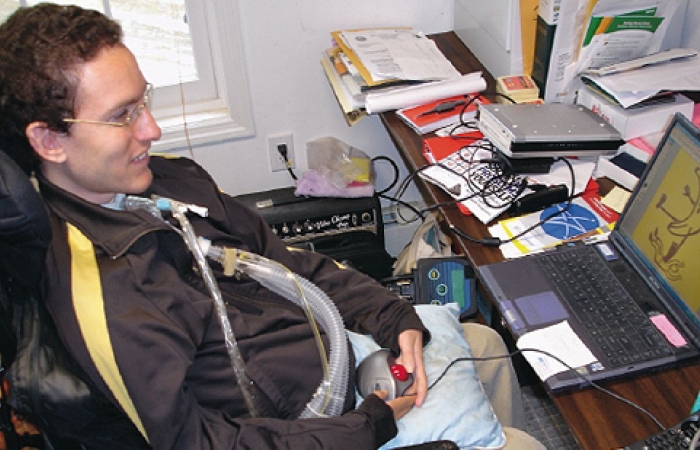
DMD Progression Studied in Very Young and Nonwalkers

Studies to understand how Duchenne muscular dystrophy progresses in children under 3 and in nonwalking boys will help with the design of future trials
Update (Jan. 23, 2013): As of early 2013, MDA's DMD Clinical Research Network includes these five sites: University of California, Davis (UC Davis); Nemours Children's Hospital in Orlando, Fla.; Washington University in St. Louis; Nationwide Children’s Hospital in Columbus, Ohio; and Children's Medical Center in Dallas. See Help Today, Help Tomorrow is Goal of MDA's Duchenne Clinical Research Network to learn more.
Updated (Feb. 7, 2011): This article was updated to reflect that Pallavi Anand is the primary coordinator for the Missouri site.
Finding out whether or not an experimental treatment helps individuals with Duchenne muscular dystrophy (DMD) requires that researchers know the usual course of the disease and have measurements that will show if a treatment is changing the disease course.
These measurements, called "outcome measures," are fairly well established for children with DMD who are between about 3 and 12 years old who are able to walk.
However, they are not well established for those under age 3 or for those with this disease who are no longer walking.
The MDA Duchenne Muscular Dystrophy Clinical Research Network is seeking to establish norms and outcome measures for very young and nonwalking DMD patients, as part of its mission to speed research in this disease.
About the new studies
Two studies are being conducted. In the first, DMD Clinical Research Network investigators are seeking infants and young boys under the age of 3 who have a definite diagnosis of DMD. Parents must be willing to have their child participate in a two-year study of clinical outcomes of motor and mental development.
Investigators for the second study are seeking boys and young men between 7 and 22 years of age who have a definite diagnosis of DMD and who are no longer walking. The time frame for this study is approximately 2.5 years.
For details, contact the nearest study site, listed below.
See also Study to Get More Information About Nonambulatory Boys & Men With Duchenne Muscular Dystrophy (DMD).
(Although females also can have DMD or be DMD carriers, the overwhelming majority of individuals with classic DMD symptoms and disease progression are male, and only males are being sought for these studies.)
Meaning for people with DMD
Although there is no direct benefit to families or individuals with DMD who participate in these outcome measure studies, the importance of these studies for future testing of experimental treatments for this disease cannot be overstated.
Having a clear idea of how DMD progresses in the very early years and in the years after walking has stopped, and having ways to measure changes in disease progression in response to an experimental treatment, are essential if research is to move ahead.
To listen to a podcast about outcome measures, particularly the six-minute walk test in DMD, go to This Month in Muscular Dystrophy and click on the December 2010 podcast, produced by Nationwide Children's Hospital in Columbus, Ohio.
Study sites 
California
Alina Nicorici
University of California-Davis Medical Center
Sacramento
alina.nicorici@ucdmc.ucdavis.edu
Massachusetts
Gretchen DeLuke
Children's Hospital Boston
(617) 355-2752
gretchen.deluke@childrens.harvard.edu
Elizabeth Shriber
Children's Hospital Boston
(857) 218-4677
elizabeth.shriber@childrens.harvard.edu
Minnesota
Amy Erickson
University of Minnesota Medical Center
Minneapolis
(612) 626-4690
eric1820@umn.edu
Missouri
Pallavi Anand
Neurology
Washington University Medical Center
St. Louis
(314) 362-2490
anandp@neuro.wustl.edu
Cheryl Rainey
Pediatric Cardiology
Washington University Medical Center
St. Louis
(314) 454-6147
rainey_c@kids.wustl.edu
Ohio
Laurence Viollet
Nationwide Children's Hospital
Columbus
(614) 355-2695
laurence.viollet@nationwidechildrens.org
MDA Resource Center: We’re Here For You
Our trained specialists are here to provide one-on-one support for every part of your journey. Send a message below or call us at 1-833-ASK-MDA1 (1-833-275-6321). If you live outside the U.S., we may be able to connect you to muscular dystrophy groups in your area, but MDA programs are only available in the U.S.
Request Information